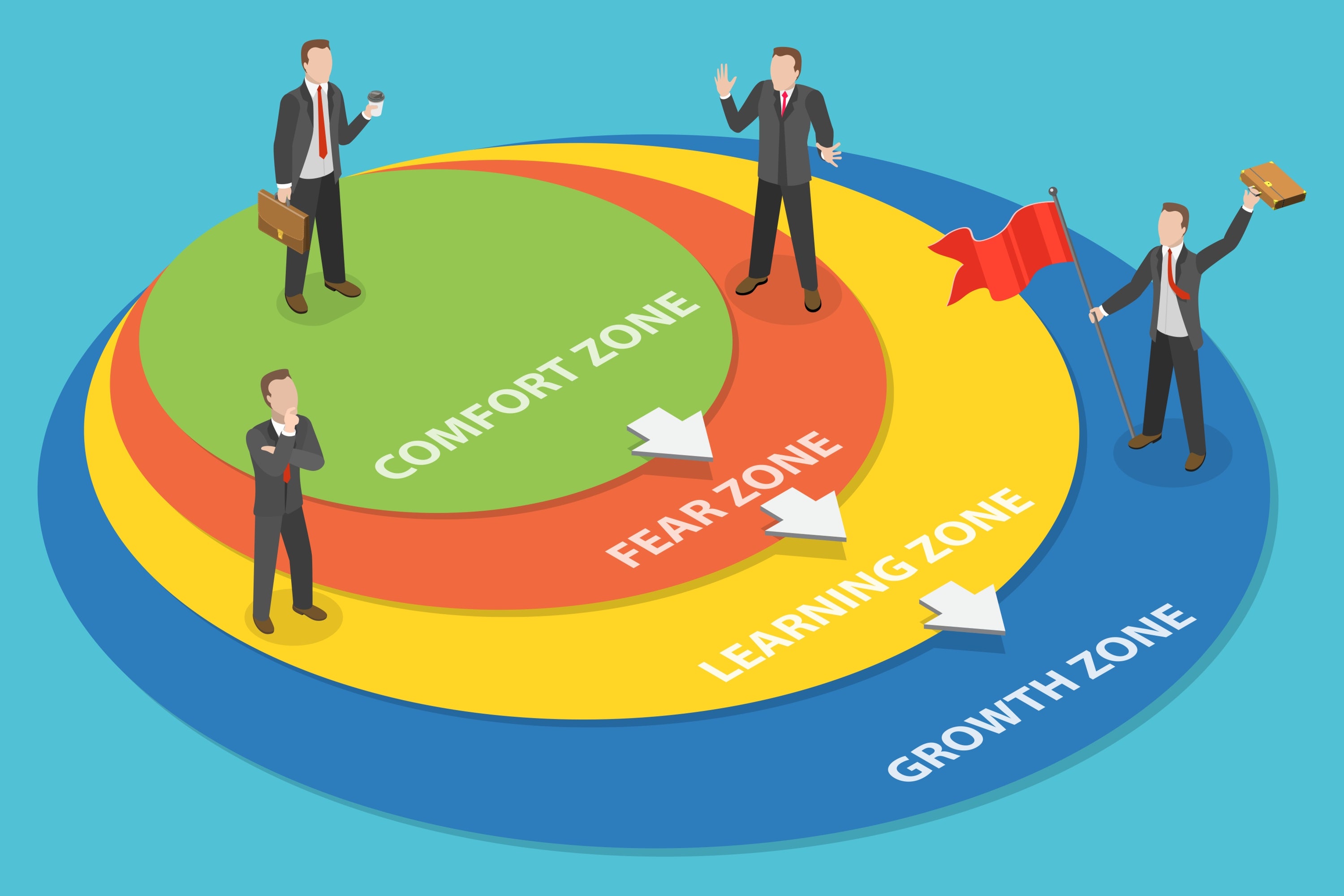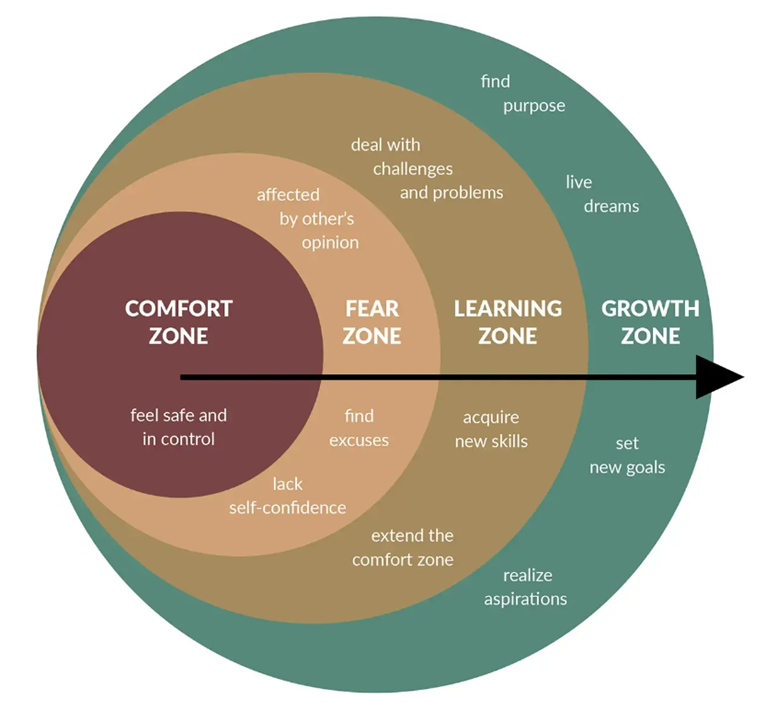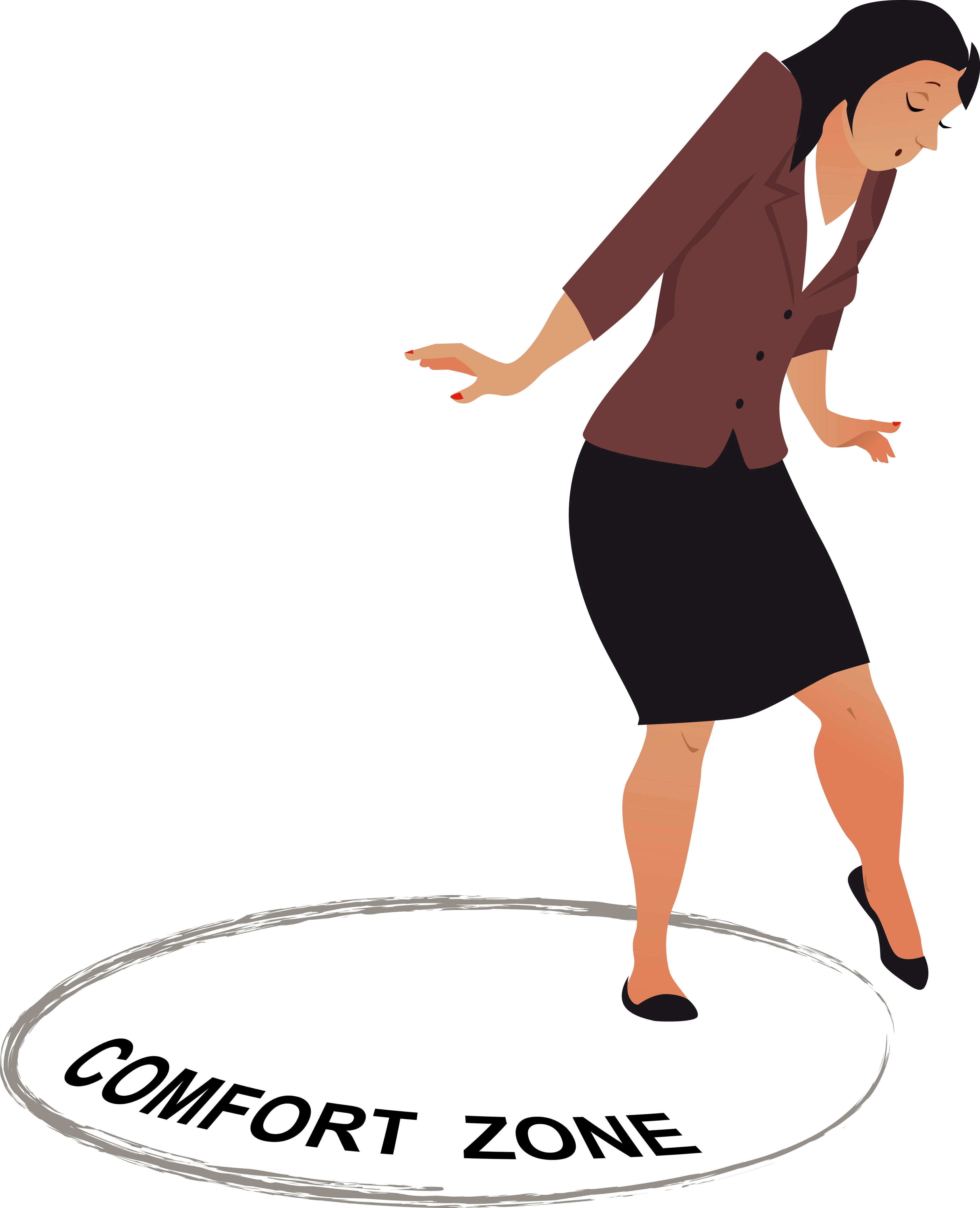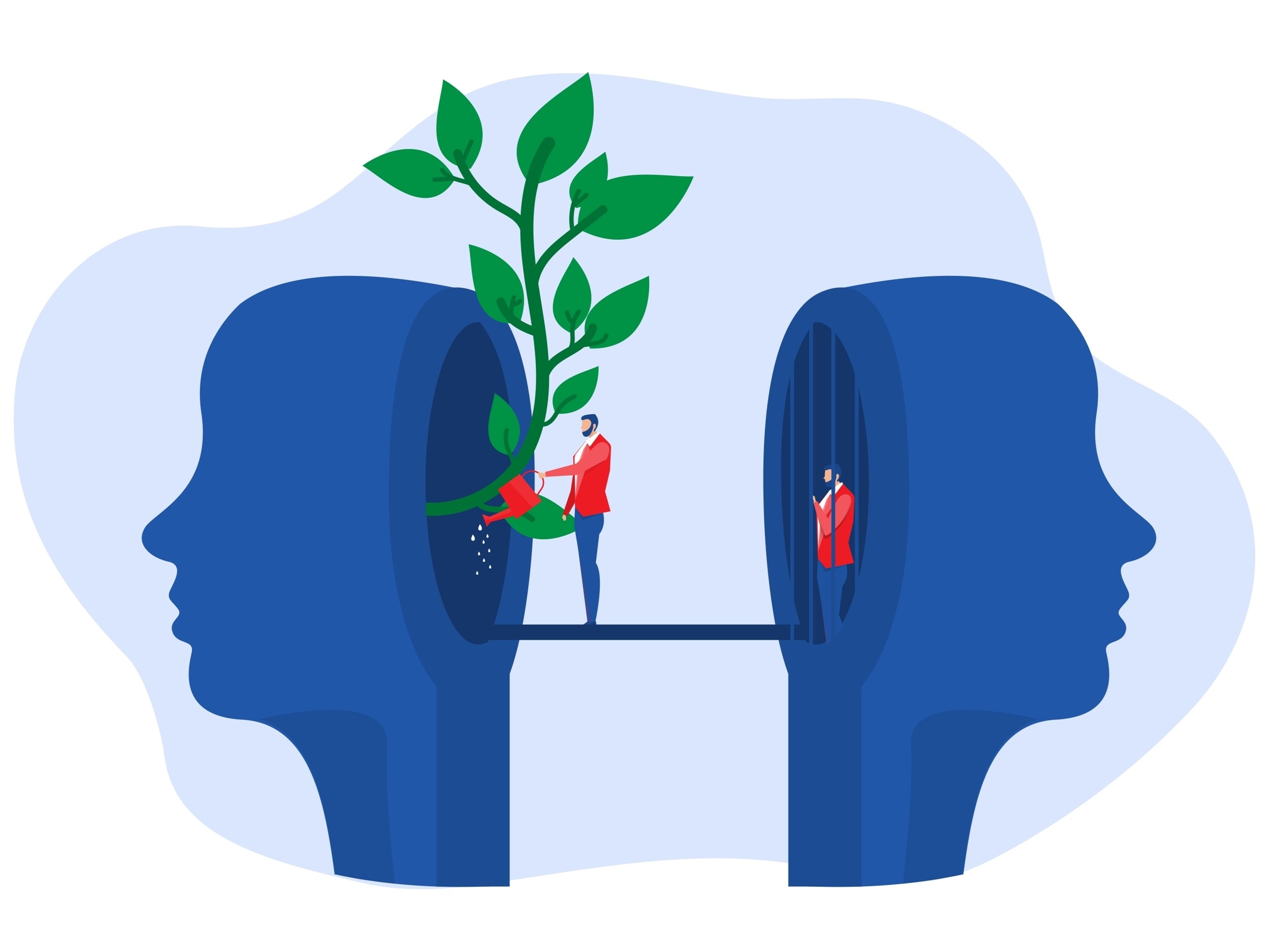Banner artwork by Overearth / Shutterstock.com
Taking personal risks can grow you and your career
“A comfort zone is a beautiful place — but nothing ever grows there.”
Anonymous
Lawyers live within their comfort zones. For many this is outside of work as well as within it. We often associate risk taking with operational risk — how do we reduce risk? how do we avoid risk? But the right kinds of risks involve moving outside of our comfort zone and can lead to growth for the individual and their long-term career.

Risk can involve moving into an area we are unfamiliar with (and therefore not perfect at!) and it can bring up a fear of failure — neither of which are innately accepted by lawyers. Studies show that women take fewer risks than men — KPMG’s 2019 Women’s Leadership Study of over 2,000 women ranked hard work as what had most contributed to their successful careers (73 percent) and risk taking as a very low contributor (only eight percent).
Risk taking can include asking to lead a new project at work, asking for more responsibility at work, taking on studies, moving abroad, changing industries, or moving laterally out of a legal role into the business. All of these (and more) can lead to great personal growth and long term success.
What is the comfort zone?
Stepping beyond the comfort zone means moving across fear, into learning, and then finally into growth.
The “comfort zone” was coined by management thinker Judith Bardwick in her 1991 work Danger in the Comfort Zone. It has been described as “a behavioral state within which a person operates in an anxiety-neutral condition, using a limited set of behaviors to deliver a steady level of performance, usually without a sense of risk.”
The idea of the comfort zone can be traced back to Robert M. Yerkes and John D. Dodson explaining that the steady level of comfort creates a steady level of performance. People stay within their comfort zones because they feel safe, but they don’t grow or change without the stress and anxiety that comes from taking risks by taking new challenges and pushing boundaries, as shown in the diagram below.
Stepping beyond the comfort zone means moving across fear, into learning, and then finally into growth. Fear is something we like to avoid whenever we can, and learning takes time and energy as we move from a beginner to an expert. By moving into the growth zone we find purpose and self-reflection.

Tips to move from comfort zone to the growth zone

If you are nervous — start small and take risks that feel manageable
By taking small risks that are likely to pay off, you are more likely to consolidate positive experiences with risk taking and therefore take more in the future. This is also a great way to build your confidence, one of the most important predictors of how likely we are to take risks. Perfectionism, procrastination, and overthinking all stand in the way of us moving outside of our comfort zones and taking any risks. Starting small helps to counter those three habits by being able to move quickly outside of our comfort zones.
Aleutie / Shutterstock.com
By taking small risks that are likely to pay off, you are more likely to consolidate positive experiences with risk taking and therefore take more in the future.
Risk taking can take time
Risk taking doesn’t have to be sudden and spontaneous, particularly if you want to move industries, ask for promotions, or move countries. Take time to consider all information you can about the risk you want to take — talk to people in your social networks (both personal networks and also your online network like LinkedIn). Spend time having coffees with people and asking them about their own experiences and how you can learn from them. If you want to move to a new industry, role, or country — ask your connections to introduce you to others to connect and engage with. Join member networks or social networks that might help you meet a mix of people both taking on the risk at your own level and also those who are more experienced — the mix of both is important as you want to share your experience with peers and know you are not alone improving your expertise but it also helps to hear from those who are experts sharing how they started out and grew their confidence and skills. For tips on how to grow your network and confidence when moving overseas see my earlier article.
Join member networks or social networks that might help you meet a mix of people both taking on the risk at your own level and also those who are more experienced.
Reframe “failure”
For many, if they take on a new challenge or role that doesn’t quite work out, they see it as a failure and are less likely to want to try again. Try reframing it by identifying how you benefitted and grew from the experience (this can be learning new skills that can help you later, making new connections, having fun, or experiencing a positive culture).
Embrace a growth mindset
Stanford University psychologist and mindset expert, Carol Dweck suggested that our ability to learn and grow is influenced by our beliefs in our own intelligence and abilities — as either fixed traits that we cannot change or as attributes that can be improved through effort. People with a growth mindset see failure as an opportunity to learn and improve. For more on how to cultivate a growth mindset for yourself and your team, see my earlier article.

Take calculated risks
While for some, it is easier to take career risks when they are young, if you feel stale in your role or your circumstances, making changes like moving industries or changing countries can be enough to put the wind back in your sails. You could try to do this incrementally — for example, start by moving to a multinational organization in the country where you live and experience the difference in culture and working in different jurisdictions. If possible, try to visit the other country offices. Doing this may feel gradual and much less like taking an unnerving risk of moving overseas and looking for a new role. If you can then find a role in your same organization as a secondment this works in the same way — you know the business and are used to its culture, but you have taken some risk to change by moving to a new country. The same can be said for moving out of legal into an operational or organizational role — if you start within your current organization, it will feel more manageable and you are more likely to feel confident sooner and then take greater risks.
Google’s Project Aristotle researchers considered academic studies of how teams worked and found the best teams worked where people feel psychological safety. Psychological safety was described by Harvard Business School professor Amy Edmondson as a group culture she defined as ‘‘shared belief held by members of a team that the team is safe for interpersonal risk-taking.’’ Psychological safety is ‘‘a sense of confidence that the team will not embarrass, reject, or punish someone for speaking up,’’ Edmondson wrote in a study published in 1999.
Learn more about how taking risks helps you grow
An article in Betterup identified seven benefits of taking risks — feeling a sense of accomplishment, erasing old stories and releasing negative thoughts, learning more about yourself including what makes you happy and what are your values, increasing confidence, opening us up to new opportunities, building resilience and being more satisfied with our lives, and therefore having fewer regrets.

Cultivate an internal locus of control
People with an internal locus of control believe they are responsible for the events of their lives and their actions affect the outcome of events. They focus on how they can improve or what they can do to influence when pursuing their goals. People with an external locus of control believe they have no control over what happens, blame others for their problems, and find excuses not to pursue their goals. They are also more vulnerable to learned helplessness. Having a strong internal locus of control builds:
- Self-determination refers to a person’s ability to make choices, manage their life, and feel in control and intrinsically motivated. People who have high self-determination possess an internal locus of control and feel that their behaviors will have an influence on outcomes. When they are confronted with challenges, self-determined people feel that they can overcome challenges through diligence, good choices, and hard work.
- Self-efficacy is described by psychologist Albert Bandura as the belief a person has control of their own lives and whether they are able to accomplish tasks and achieve goals. People with greater self-efficacy recover more quickly from setbacks and disappointments and take on challenging problems as something they can work on and solve. To learn more about how to cultivate an internal locus of control see my earlier article.
People with an internal locus of control believe they are responsible for the events of their lives and their actions affect the outcome of events.
Taking calculated risks moves us out of our comfort zone and into the growth zone. We grow as people, learn new skills, and enjoy better lives.
“Outside of the comfort zone is where the magic happens.”
Anonymous
Disclaimer: The information in any resource in this website should not be construed as legal advice or as a legal opinion on specific facts, and should not be considered representing the views of its authors, its sponsors, and/or ACC. These resources are not intended as a definitive statement on the subject addressed. Rather, they are intended to serve as a tool providing practical guidance and references for the busy in-house practitioner and other readers.




